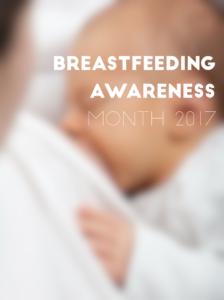In the 2nd article in a series, New York Women’s Rights Lawyer Jack Tuckner explains how New York breastfeeding laws apply to working mothers.
Breastfeeding Awareness Month 2017
Women’s Rights in the Workplace Series—Part II
Breastfeeding in New York
By Jack Tuckner, Esq.
If my baby were nursing and I could breastfeed her, I’d want to do it in New York, a state highly breastfeeding-friendly, as all states aren’t created equal when it comes to nursing mother’s rights.
For example, the N.Y. Civil Rights Law § 79-e permits a mother to breastfeed her child in any public or private location, “irrespective of whether or not the nipple of the mother’s breast is covered during or incidental to the breast feeding.” In other words, those who feel offended by the natural act of nursing can go fish, as NY protects the rights of infants and nursing mothers.
Regarding women who are nursing post-partum after they return to work, N.Y. Labor Law § 206-c requires all NY employers to allow breastfeeding mothers reasonable, unpaid break times to express milk, and they must also make a reasonable attempt to provide a private location for her to do so. NY Law also prohibits employment discrimination against breastfeeding mothers, and the law extends to nursing mothers for up to three years from the birth of their baby.
Speaking of those peevish and prudish people who may get all exercised by viewing a naked breast or nipple, New York’s public lewdness law specifically excludes public breastfeeding from the ambit of its coverage, so it’s just too bad for anyone objecting to your nursing activity.
The Breastfeeding Mothers Bill of Rights
N.Y. Public Health Law § 2505-a creates the Breastfeeding Mothers Bill of Rights and requires it to be posted in a public place in each maternal health care facility. The Maternal and Child Health Commissioner must also make the Breastfeeding Mothers Bill of Rights available on the health department’s website so that health care facilities and providers may include such rights in a maternity information leaflet. (2009 N.Y. Laws, Chap. 292; AB 789)
Not that I wish this situation upon anyone, but it’s comforting to know that N.Y. Correction Law § 611 allows a mother of a nursing baby to be accompanied by her baby if she is sentenced to a correctional facility when she is breastfeeding. This law also allows a baby born to an imprisoned mother to return with the mom to the correctional facility. The baby may remain with the mother until one year of age if the woman is physically capable of caring for the child.
In terms of bonding time for both the baby and nursing mother, this humane NY law has saved hundreds of women and babies the wrenching suffering of being literally separated at birth.
As you can see, NY goes out of its way to protect and encourage nursing mothers to optimally nourish and bond with their babies through breastfeeding and expressing milk when necessary, so if you live (or work, when applicable) in New York state these protections apply to you.
Jack Tuckner is co-founder of Tuckner, Sipser, Weinstock & Sipser, LLP, with offices in NYC and the Mid-Hudson Valley, NY, where he focuses on workplace law helping clients facing discrimination due to pregnancy and other sex-specific challenges. He has tried over twenty-five cases to verdict, including a women’s workplace rights victory that resulted in a high six-figure punitive damages award against the Defendant. He has also obtained significant settlements for clients without resorting to the need for protracted litigation. Jack is the author of Women’s Rights in the Workplace, a Guide to Pregnancy Discrimination, and he provides continuing legal education seminars for attorneys on the subjects of gender and pregnancy discrimination.
For any specific workplace rights questions, you can reach Jack Tuckner by phone at 866-Fem-Laws, or by email at [email protected], or you can tweet Jack at @jacktuckner.
